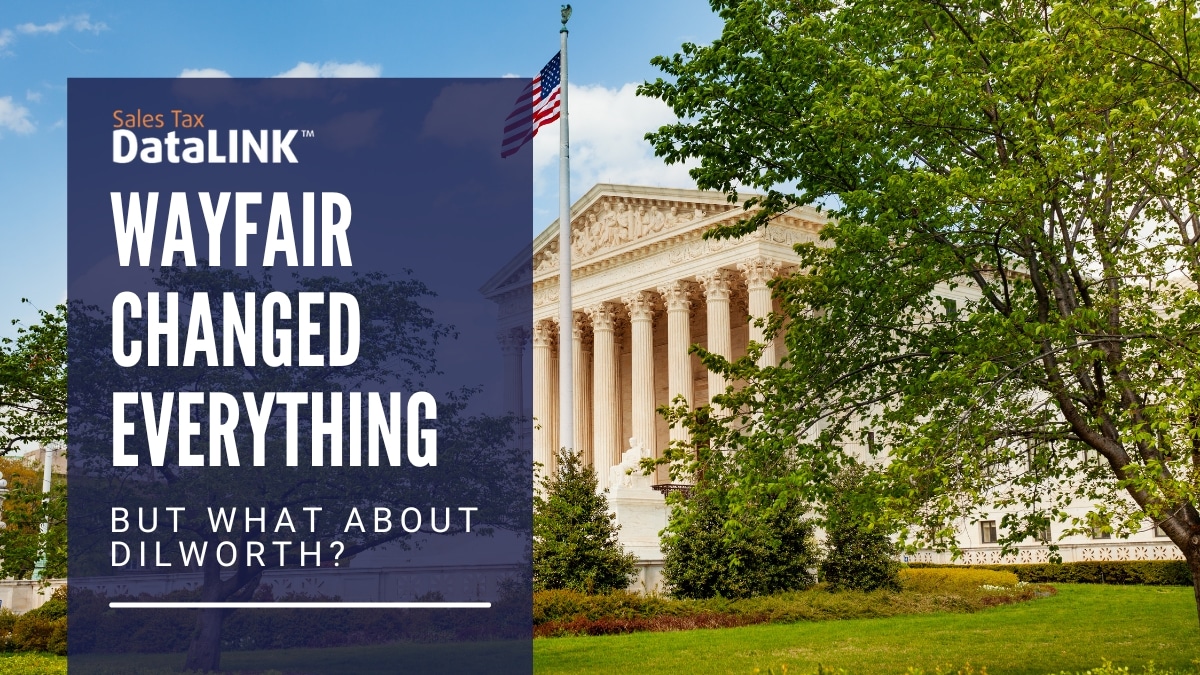THE WAYFAIR CASE
The Supreme Court decided in the 2018 Wayfair case that states could require remote sellers to collect sales tax even without a physical presence in the state. When a company in Kentucky makes a sale in Nebraska, they concluded, that the seller benefits from the electrical systems and internet networks their customer uses in Nebraska, the roads their goods travel over during shipping, and the sheer opportunity to sell something in Nebraska. Therefore, they should help Nebraska out by collecting and remitting sales taxes.
States were all for it. By now, every state that has a state sales tax has added sales tax compliance requirements for remote sellers. Some states without a sales tax are requiring remote sellers to collect municipal sales taxes, too.
Businesses have struggled with the new requirements. The Government Accountability Office wants Congress to intervene. The Senate wants changes, too. Court cases are coming up as well. One has made its way to the Supreme Court.
THE QUAD GRAPHICS CASE
The North Carolina Dept. of Revenue sent Wisconsin-based Quad Graphics a bill for more than $3 million in back taxes. They claimed that they didn’t owe the taxes. Wayfair didn’t apply to them, they said, because Wayfair was wrong. That ruling had, Quad argued, ignored an important precedent: McLeod v. J. E. Dilworth Co.
The North Carolina Supreme Court disagreed, saying that the Wayfair decision allows North Carolina to require Wisconsin companies to collect sales taxes in sales made in Wisconsin to customers in North Carolina. Experts filed “friend of the court” briefs insisting that the precedent of Dilworth prevented North Carolina from making that decision. Only the Supreme Court could overturn Dilworth, they said. The court in North Carolina did not have the right to do so.
The National Association of Manufacturers also filed a friend of the court brief, in which they argued that the North Carolina decision hurts manufacturers and small businesses. Manufacturers and small businesses would have to guess, they said, whether the states they sell to will apply Wayfair or Dilworth. “Many remote sellers, including small manufacturers and other businesses, have no legal department or are not otherwise equipped to engage in a 50-state roulette about Dilworth’s vitality,” they wrote. “Allowing States and localities to require remote sellers to collect sales taxes on even goods sold on F.O.B. shipper terms will open up every remote seller to over 10,000 jurisdictions’ sales taxes.” This, said the NAM, is in defiance of the Commerce Clause.
The North Carolina Revenue Office filed a brief saying, “It is well-established that when a holding of this Court is flatly irreconcilable with an earlier decision, the later precedent controls.” In other words, Wayfair overturned Dilworth as well as Quill.
McLeod v. J. E. Dilworth Co.
In 1944, a company in Tennessee sold some items that were delivered to an address in Arkansas by a common carrier. Arkansas wanted the Tennessee company to collect sales tax on their behalf.
“[T]he Tennessee seller was through selling in Tennessee,” the court decided. “We would have to destroy both business and legal notions to deny that, under these circumstances, the sale — the transfer of ownership — was made in Tennessee. For Arkansas to impose a tax on such transactions would be to project its powers beyond its boundaries and to tax an interstate transaction.”
The court suggested that Arkansas could impose a use tax on the people who received the goods, since the goods were being used in Arkansas, but could not require the sellers in Tennessee to collect taxes for Arkansas. They based their decision on the Commerce Clause of the U.S. Constitution.
The Wayfair decision was exactly contrary to this decision.
THE COMMERCE CLAUSE
The Commerce Clause says that “The Congress shall have the power to lay and collect taxes, duties, imposts, and excises, to pay the debts and provide for the common defense and general welfare of the United States; but all duties, imposts, and excises shall be uniform throughout the United States;…To regulate commerce with foreign nations, and among the several states, and with the Indian tribes.”
Observers suggest that the aspect of the Commerce Clause that is involved in a debate about Wayfair vs. Dilworth is the “Dormant commerce clause.” As Cornell Law School explains it, “The Dormant Commerce Clause refers to the prohibition, implicit in the Commerce Clause, against states passing legislation that discriminates against or excessively burdens interstate commerce. Of particular importance is the prevention of protectionist state policies that favor state citizens or businesses at the expense of non-citizens conducting business within that state.”
THE OUTCOME
The case is still underway. Oral arguments have not yet begun. The decision in this case could have repercussions for manufacturers and small businesses across the nation.




